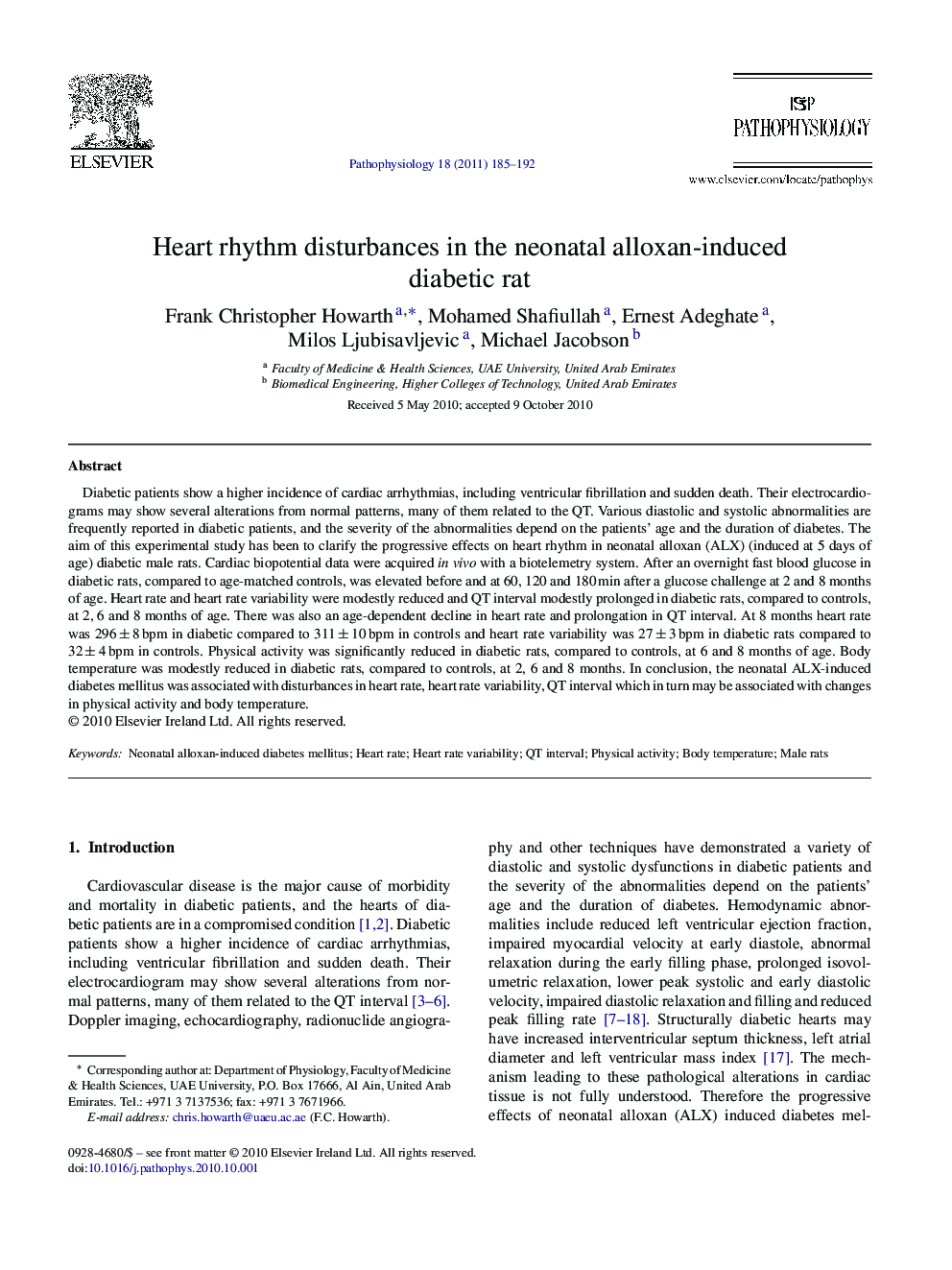| Article ID | Journal | Published Year | Pages | File Type |
|---|---|---|---|---|
| 4137288 | Pathophysiology | 2011 | 8 Pages |
Diabetic patients show a higher incidence of cardiac arrhythmias, including ventricular fibrillation and sudden death. Their electrocardiograms may show several alterations from normal patterns, many of them related to the QT. Various diastolic and systolic abnormalities are frequently reported in diabetic patients, and the severity of the abnormalities depend on the patients’ age and the duration of diabetes. The aim of this experimental study has been to clarify the progressive effects on heart rhythm in neonatal alloxan (ALX) (induced at 5 days of age) diabetic male rats. Cardiac biopotential data were acquired in vivo with a biotelemetry system. After an overnight fast blood glucose in diabetic rats, compared to age-matched controls, was elevated before and at 60, 120 and 180 min after a glucose challenge at 2 and 8 months of age. Heart rate and heart rate variability were modestly reduced and QT interval modestly prolonged in diabetic rats, compared to controls, at 2, 6 and 8 months of age. There was also an age-dependent decline in heart rate and prolongation in QT interval. At 8 months heart rate was 296 ± 8 bpm in diabetic compared to 311 ± 10 bpm in controls and heart rate variability was 27 ± 3 bpm in diabetic rats compared to 32 ± 4 bpm in controls. Physical activity was significantly reduced in diabetic rats, compared to controls, at 6 and 8 months of age. Body temperature was modestly reduced in diabetic rats, compared to controls, at 2, 6 and 8 months. In conclusion, the neonatal ALX-induced diabetes mellitus was associated with disturbances in heart rate, heart rate variability, QT interval which in turn may be associated with changes in physical activity and body temperature.
